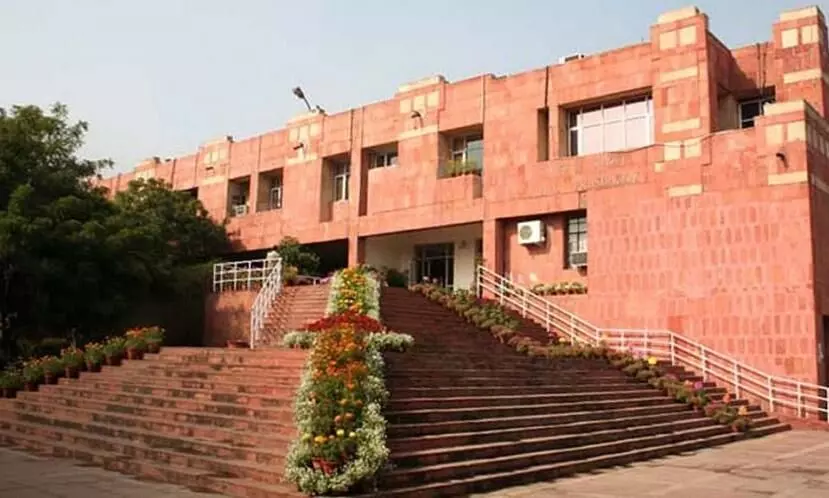
JNU course terms 'Jihadi violence' as only form of 'religious terror'
text_fieldsNew Delhi: Some of the key assertions in the new course at Jawaharlal Nehru University (JNU) have sparked conversations. The curriculum names "Jihadi terrorism" as the only form of "fundamentalist-religious terrorism".
The course on counter-terrorism for engineering students pursuing a dual degree programme also says that Communist regimes in the erstwhile Soviet Union and China were the "predominant state-sponsors of terrorism" that influenced "radical Islamic states," reported The New Indian Express.
One of the modules titled 'Fundamentalist-religious Terrorism and its Impact' says that fundamentalist, religious-inspired terrorism has played a critical and dominant role in the spawning of terrorist violence at the beginning of the 21st century.
It states that the perverse interpretation of the Koran has resulted in the rapid proliferation of jihadi cultist violence that glorifies death by terror in suicidal and homicidal variants. "The exploitation of cyberspace by the radical Islamic religious clerics has resulted in the electronic propagation of jihadi terrorism world over".
The modules further elaborate that online electronic dissemination of jihadi terrorism has resulted in the spurt of violence in non-Islamic societies that are secular and are now increasingly vulnerable to the violence that (is) on the increase.
Another module, titled 'State-sponsored Terrorism: Its Influence and Impact' refers to the Soviet Union and China alone and says that terrorism always has a geographical base and alleges that both nations have been predominant state-sponsors of terrorism, reported The Indian Express.
It continues to state: "State-sponsored terrorism has been large during the ideological war between the West and the Soviet Union and China." The module adds that both nations have been "heavily involved in terms of their intelligence agencies training, aiding and providing logistical support to Communist ultras and terrorists."
A meeting on August 17 of the university's Academic Council cleared the course and the Teacher's Association alleged that no discussion was allowed in the meeting. Students pursuing an MS with specialisation in International Relations after a BTech in Engineering can take the course.
The Academic Council is the university's highest decision-making body for academics. The clearance of the course will have to be endorsed by the Executive Council, which decides on management and administrative issues.
Ruchir Gupta, Dean of the School of Engineering, told The Indian Express that he is no expert on international relations and the School of International Studies (SIS) wanted to introduce the course.
Arvind Kumar, Chairperson of the Centre for Canadian, US, and Latin American Studies, confirmed to the newspaper that he designed the course. He stated that the reference to only one religion (Islam) in the module was "because Islamic terrorism is a world-accepted thing. After the Taliban, it has gained momentum now".
Kumar added that state-sponsored terrorism is very difficult to define. "We have to find evidence for it and only then we can include it." He also stated that he has "not come across" an instance of any other religion resorting to methods of terrorism.
The optional course is titled 'Counter-Terrorism, Asymmetric Conflicts, and Strategies for Cooperation among Major Powers'.























